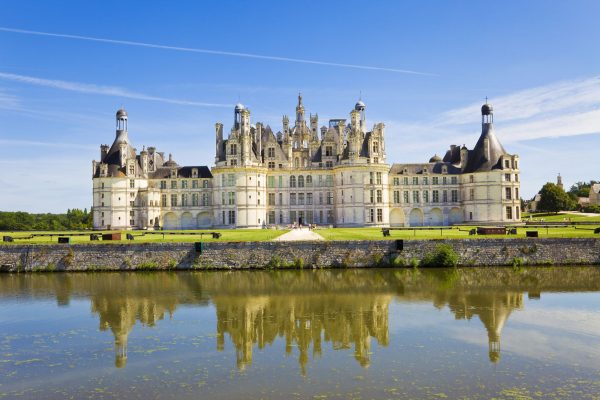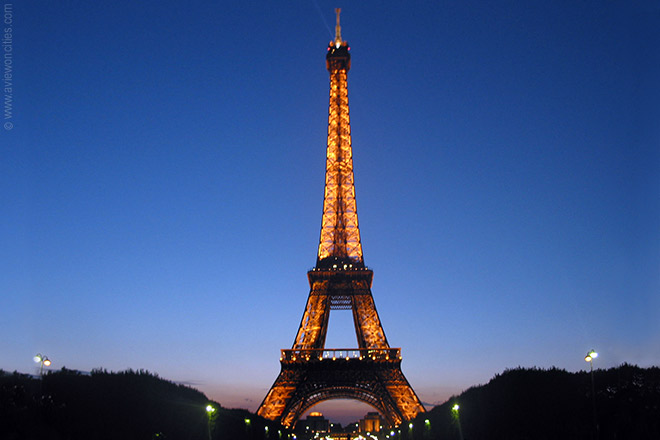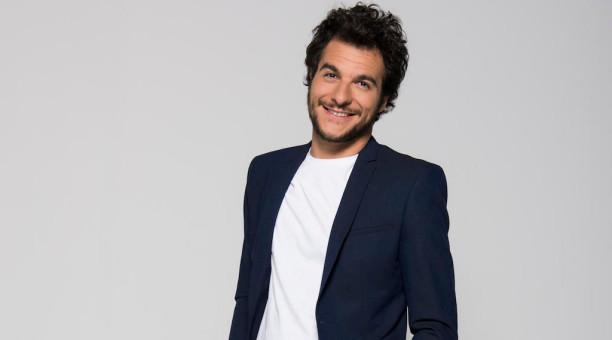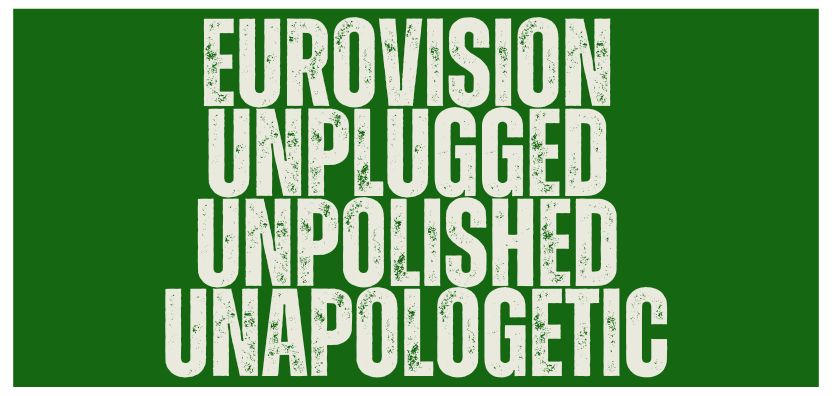
So, to the third of our Big Five anthology. This is the one that perplexes me the most. With Spain and Germany I knew what I believed to be wrong. The Spaniards have to STOP BEING SPANISH. The Germans need to stop f*cking it all up with arse. France, however, is like life … complicated.
How did it all start?
French Eurovision history is like that of no other country, apart from possibly the UK.
With French as the dominant lingua franca for the first ten years of Eurovision, France and its broadcasters were never out of the top five. Even as the contest grew, in its formative years they were always there or thereabouts. By the time the 1970 contest came around they had had four wins, three second places and four thirds under their stylish belts.
Then the wheels fell off
Coming fourth in 1970 (in a 12-song contest) seemed to have such an effect that they didn’t come close to the top ten again until 1975. This was despite French TV initially withdrawing late in ’74 due to Pompidou’s demise.
They suddenly remembered what to do again, and placed fourth. Then came a second place in 1976 followed by the 1977 victory. The glory days were back … but only for a short time. Three third places followed in the next four years. The exception was Profil who ended in a dismal eleventh place in 1980.
Insanity you say?
The last of their third places in 1981 proved so shocking to TF1, that the broadcaster pulled out in horror. It led to the infamous judgment on Eurovision uttered by the then head of entertainment at TF1:
“The absence of talent and the mediocrity of the songs were where annoyance set in. [Eurovision is] a monument to insanity.”
Thankfully, the contest has lasted longer than he – or indeed the French public’s patience – because that seemed to be the rallying cry. A change of broadcaster meant they were back for 1983. 1982 remains the only contest that the French failed to enter.
A monument to mediocrity
The following 33 years have been – to coin a phrase – a monument to mediocrity. Two runner-up spots in – 1990 and 1991 – were followed by some pretty bad (and at times debilitating) lows. 1991 proved to be the most contentious. Amina lost to Swedish Carola using tie-break rules in force at the time.
2003-2015 gave French TV a particularly dire run. The contest became “modern” and their efforts were lifted just once by the genuine genius that was Patricia Kaas. So what’s gone wrong?

Being French – that’s what’s gone wrong. Nothing wrong with the French per se. I holiday there every year. Their countryside and gastronomy are “magnifique”. However, in the context of Eurovision, “being French” seems to come with low public expectations, and this translates into little or no radio airplay. And if that isn’t enough, you’re lumbered with having to sing in French. A language that uses many words where one might do, and is not the easiest for eastern Europeans to get a handle on. It’s no wonder The French don’t score highly.
What about the broadcaster?
It’s not just the language, of course. The broadcaster must take its share of the blame for not going with the times. Bad result after bad result ought to tell someone that they’re doing something wrong, but with a typical Gallic shrug, they left well enough alone for too many years.
France 3 got in on the act when Antenne 2 / France 2 had finally had enough. They employed the flamboyant – and oft seen on Melodifestival – Bruno Beberes as head of delegation. Whilst in public Bruno was the ‘new face of France’, in private it was just more of the same.
Years came and went without a sniff of a win despite a return to national finals.
At least you tried something different …
It seems whatever Bruno and his chums tried wasn’t right. They tried French ballad (2001/02/03) and only finished fourth. They tried Pop Idol (2004), but that failed (and it would have flopped even more if the original stage show had gone on). They went back to ballad in 2005 and 2006. Nothing worked.
 Clearly the pressure was building on Bruno, for he went rogue. Les Fatals Picards, Sebastian Tellier and Jessy Matador tripped across the stage. Bruno rightly saw the contest was moving on, and it was time for the French to do the same.
Clearly the pressure was building on Bruno, for he went rogue. Les Fatals Picards, Sebastian Tellier and Jessy Matador tripped across the stage. Bruno rightly saw the contest was moving on, and it was time for the French to do the same.
Jessy gave them their best result with twelfth place in 2010.
High spots
There were some high spots. Patricia Kaas, who fans had begged for for years to sing for la France, took to the stage. She gave an ethereal performance that should have charmed anyone with a brain.
There was Amaury Vasilli. Everyone thought the contest was his to lose … except he forgot to bring his voice along, and that scuppered everything.
France 3 then tried sorta modern with Anggun – who failed thanks to the ridiculous dancers. After that came Amandine, who failed because, well, she didn’t have enough red wine. Though she made up for that in the Green Room afterwards.
France 3 cried ‘enough’ and got together some sort of national final in 2014. They got “Twin Twin” to “Win Win” with a bouncy song that was as infectious as herpes. It also failed. But this time because it was actually crap on a stick.
All change again
In came France 2 to take up the mantle, and out went Bruno. It was all change again. But not straight away. 2015 came with World War One-inspired staging for Lisa Angell. To her credit, she turned in a marvellous performance of a big ballad performance with backing dancers and screens and such like. It picked up just four points!
The French had scored just 51 points in their last four outings. No wonder the French Broadcaster (just like others before it) bemoaned Eurovision, and said nobody got France.
Some of us could have told you that in about 1992, but you continued to, in the main, do what France does: enter a boring song. You have to bring popular.
Popular, you will be popular!
 Thankfully, this year, Amir had stagecraft, charisma, a very catchy and radio-friendly song – so much so, that weeks after the contest they were still playing it on French Radio … unheard of. It appealed to the televoters who saw a good-looking confident performer able to sing into the camera. It also pleased the juries because it was crafted specifically to deliver what they were looking for: a well-constructed, modern, popular song that not only pleases “da kidz”, but also the wider viewing public. And there was a fair bit of English too. France have toyed with English in their songs since 2001 on and off, but this time it sounded like it was supposed to be there, rather than being offered up as an adornment or forced in to “get the votes.”
Thankfully, this year, Amir had stagecraft, charisma, a very catchy and radio-friendly song – so much so, that weeks after the contest they were still playing it on French Radio … unheard of. It appealed to the televoters who saw a good-looking confident performer able to sing into the camera. It also pleased the juries because it was crafted specifically to deliver what they were looking for: a well-constructed, modern, popular song that not only pleases “da kidz”, but also the wider viewing public. And there was a fair bit of English too. France have toyed with English in their songs since 2001 on and off, but this time it sounded like it was supposed to be there, rather than being offered up as an adornment or forced in to “get the votes.”
What should France do?
This, then, seems to be what France have to do.
Stop being so uptight and appeal to a broader base. The days when they could turn up, throw in something French and “romantic” have long since gone. The jury guidelines mean you can still be writing that good tune and have the language of romance prominent, but it’s not 1965 anymore. Stop trying to win a contest that you’ve already won, and win the one that you are entering.
To do that, you have to get rid of the notion that you are superior linguists and go back to basics. Tune and lyrics. Musique et paroles, if you will.
You may have thrown the kitchen sink at the contest over the last 15 years, but French Eurovision songs have always missed one vital ingredient: wide appeal. While I thank GOD you have gone with the different, it’s time to get back to the good.
More Amir-type songs and less TwinTwin shenanigans and you’ll go far!
Related items

Where did things go wrong for Germany at Eurovision?







The French being French are very proud of their cultural heritage and language is part of that.
This years prove that you can have commercial success and even Eurovision success even if it’s not fully in French.Will they learn their lesson from the 2016’s experience, you never know,
One thing though: Why the French singing in French is holding them back while the Italians, since their return, singing mostly in Italian and yet getting much better results?